UM-Flint faculty, students glean insights from European education expedition
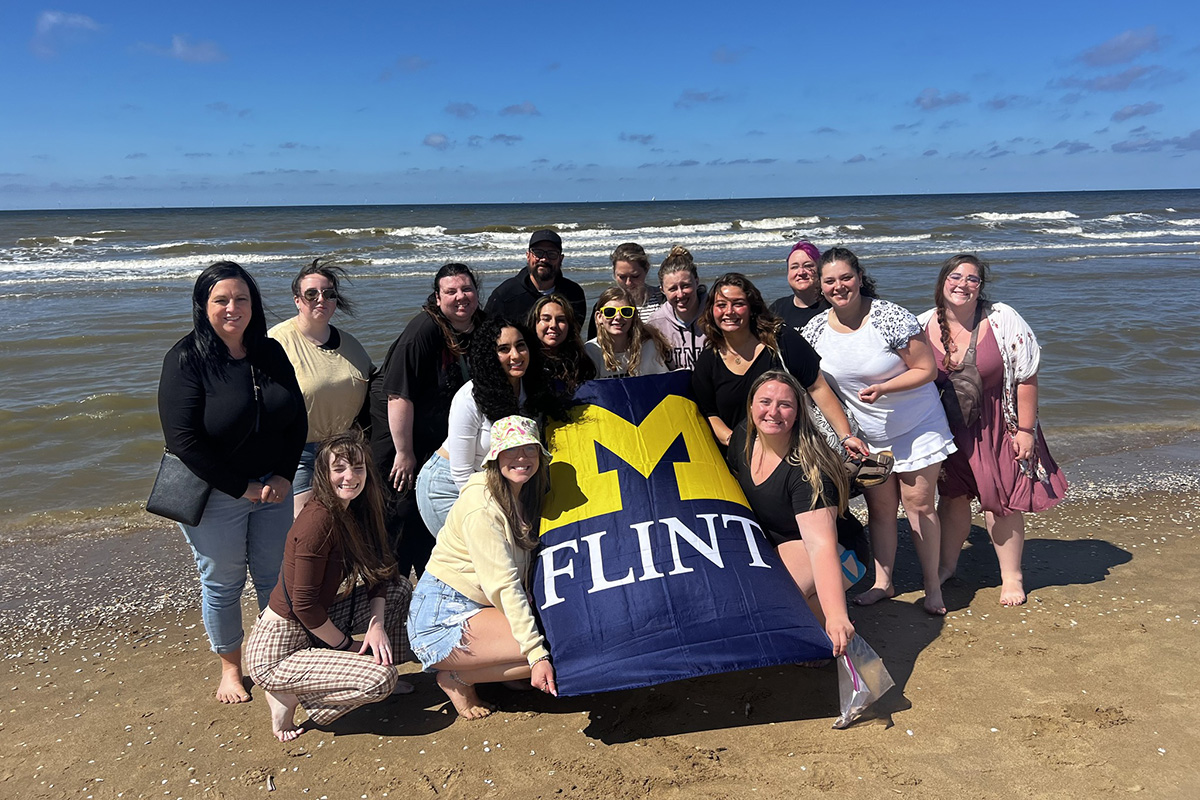
Occasionally, the most valuable lessons are those acquired beyond the traditional classroom setting, and in this particular case, beyond the borders of the United States.
Students and faculty from the University of Michigan-Flint's education department recently embarked on an enlightening expedition in Europe, visiting cities that included Amsterdam and Paris. Their aim was to bring back valuable lessons to enrich their teaching, with a focus on incorporating science, technology, engineering and math into their lesson plans. This recent trip for education majors joins similar experiences like the Wyatt Exploration Program trip to Berlin and a research team's trip to Indonesia, both of which took place earlier this year.
The UM-Flint group explored several pedagogical approaches during their trip abroad such as inquiry-based learning, which fosters curiosity discovery and problem-solving; community-based learning, which connects learning with community engagement; and a teaching method called instructional scaffolding which is focused on supporting students throughout the learning process based on their student's needs and abilities. Josie Lucas, a senior elementary education major from Bay City, said she is planning to use the scaffolding method in her own classroom someday. "As future educators, we have huge responsibilities to guide students towards self-discovery, foster community engagement, leadership and problem-solving," she said. Lucas is set to graduate in 2024 and hopes to teach Montessori kindergarten in Flint.
Andrea Marlett, a senior elementary education major from Flint, said the trip and the workshops were a valuable experience for her as well, especially the literacy, math and science workshops.
"It really allowed me to see what a teacher's role should look like in the classroom, which is to offer support, provide guidance and encourage collaborative learning," said Marlett. She added that a big difference she noticed between education in the U.S. and abroad was the level of self-directed learning in Europe.
"I noticed that students were taking charge of their learning, guiding the lesson, and forming their own thoughts and solutions when it came time to study mathematics and science," Marlett said.
Assistant Professor of Education Katherine Eaton also observed UM-Flint students learning inclusive communication skills and adapting to culturally diverse learning experiences which helped enhance their ability to connect with their future pupils. Eaton herself has direct experience with living and learning abroad. She lived in Germany during her last two years of high school and attended a six-week study abroad during her own undergraduate experience. "I know firsthand how travel can impact cultural competencies and inclusive teaching practices," she said.
Eaton's favorite parts of the trip included the chance to sit in the very chair and peer through the same telescope used by Albert Einstein during his visiting scholar tenure at the Leiden University Observatory, and engaging in STEM discussions with people from around the globe.
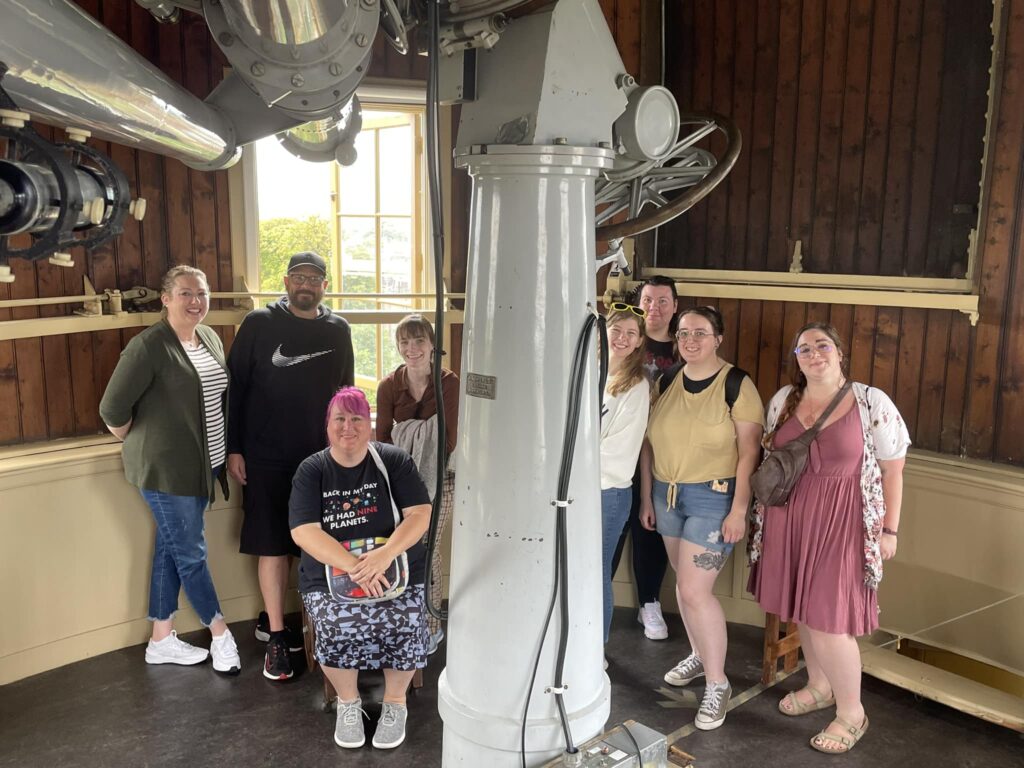
"We were all students during this experience, and learning about how STEM is taught in different countries was exciting," said Eaton. "I loved seeing my students, who had never traveled abroad, dive into an immersive learning experience," said Eaton, who has been an educator for 25 years and spent 19 years teaching K-12 students.
Lucas' favorite parts included visiting Nemo Children's Museum in Amsterdam, viewing exhibits that highlighted inclusivity, encouraged children to think critically about freewill, and demonstrated the physical effects of mindfulness and empathy.
"I feel like I learned as much about inclusion as I did about STEM education on this trip," she said.
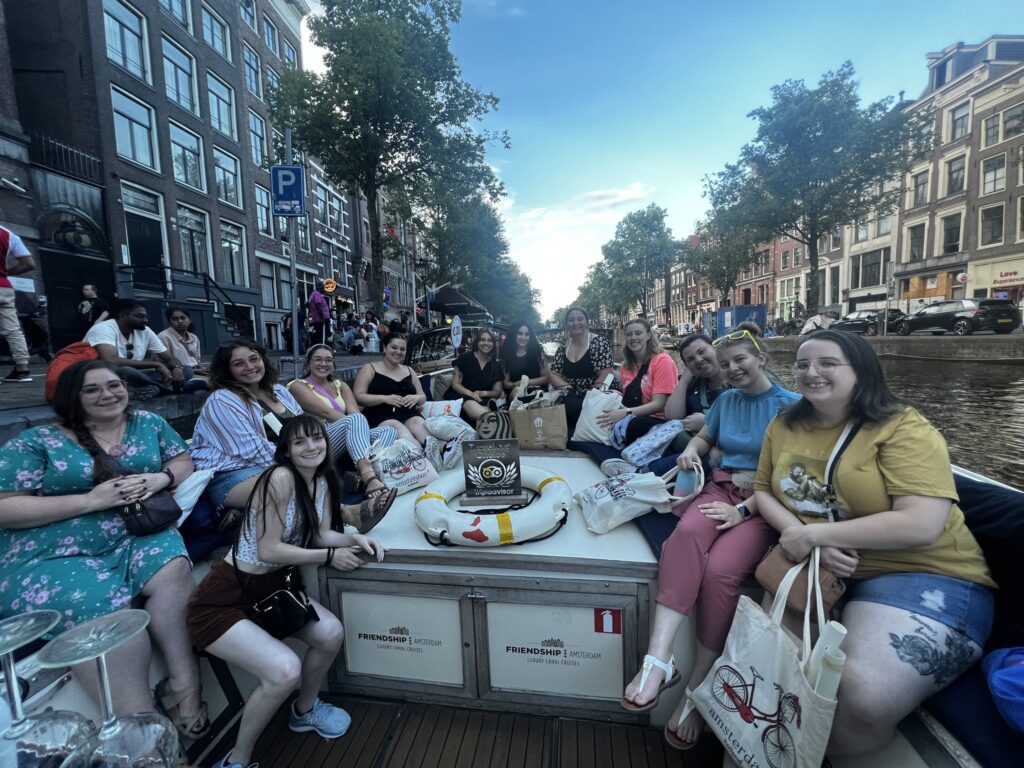
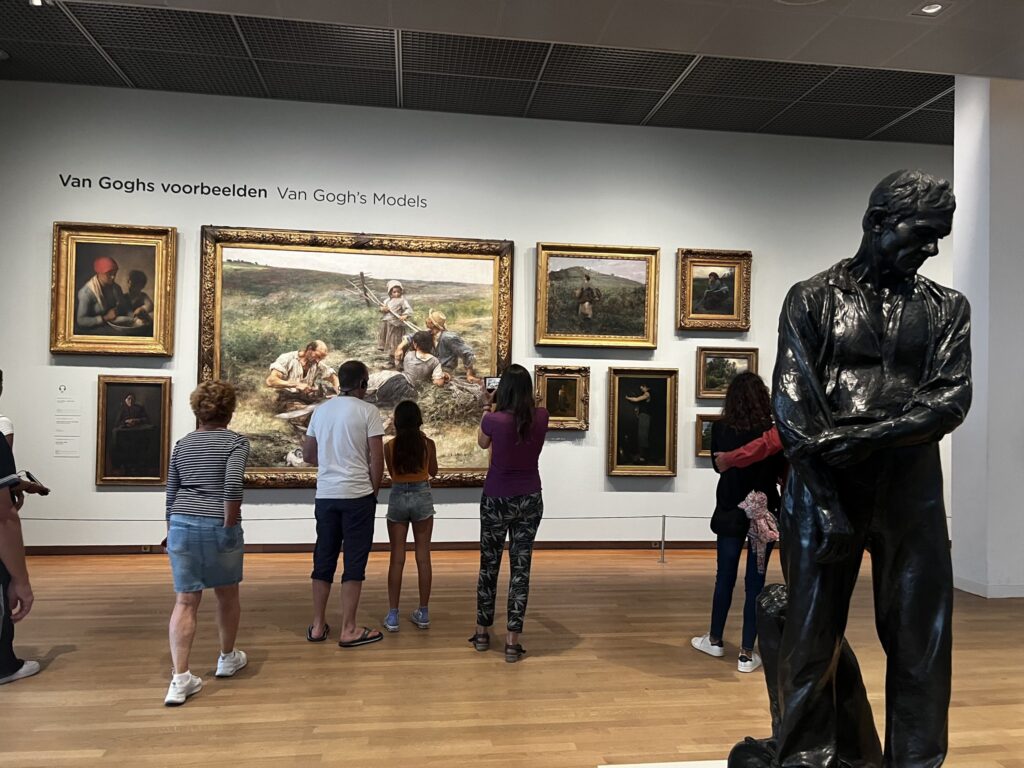
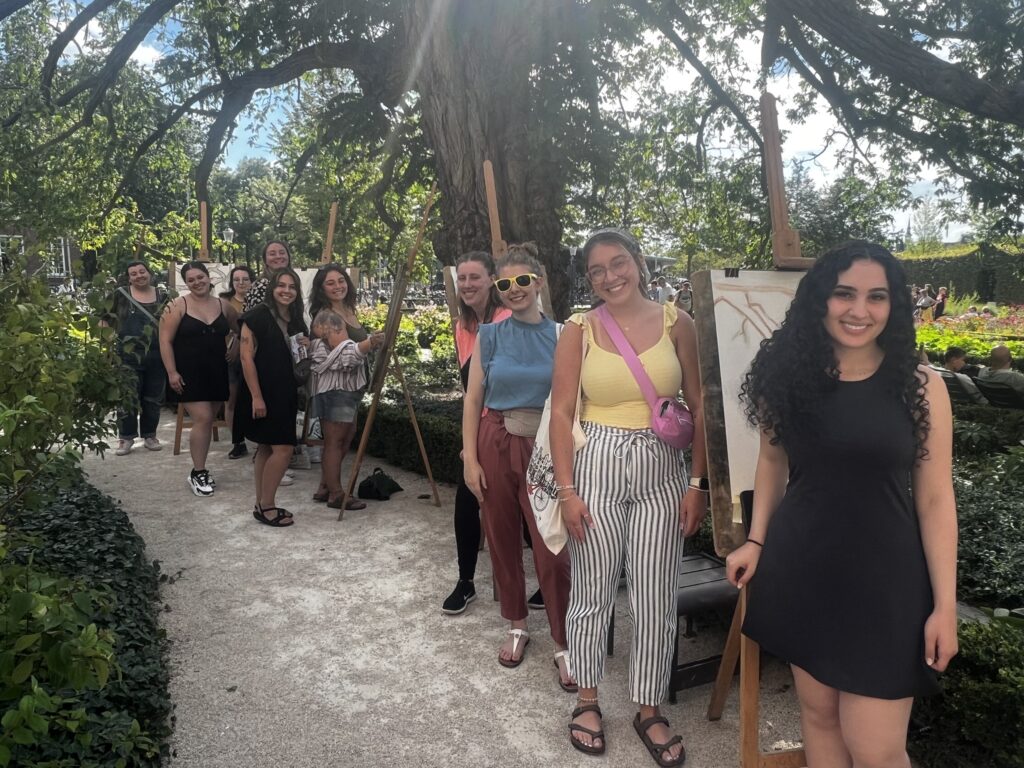
Now back at home, Eaton and her colleagues are studying the impacts of the short-term study abroad on STEM pre-service teacher efficacy and cultural competencies and have used surveys to collect data from the students who traveled abroad this summer. She and her colleagues are studying this area in order to increase equitable access to travel and allow students to explore and grow.
"A goal for me is to be able to secure enough funding sources that any student who wants to have a study abroad experience will be able to, without a financial barrier," said Eaton.
Eaton said that she's in the process of finalizing an international student teaching experience for UM-Flint students to participate in so they can expand upon what they've learned here in the U.S. while teaching in an international school. Eaton is working to ensure that UM-Flint students are paired with a teacher in the same grade range to encourage co-planning and collaboration.
To learn more about UM-Flint's education program, please visit its webpage.
Related Posts
No related photos.
Madeline Campbell
Madeline Campbell is the communications specialist for the College of Arts & Sciences. She can be reached at [email protected].